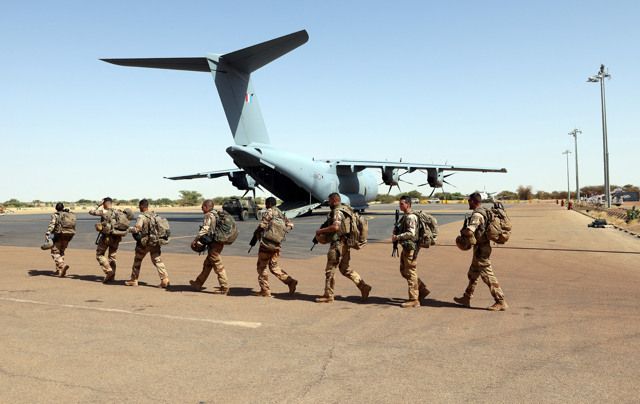February 17, 2022 9:54 am
The departure of French troops from Mali, announced on February 17, marks the painful end of a cycle, as well as a leap in the dark. The cycle is that of the French military intervention, which began successfully in 2013 when it stopped a jihadist column headed for Bamako and ended with a sense of failure and mission not accomplished. But it is also that, in a broader sense, of the great Western military interventions.
In Mali, France pays for the distance between the success of tactics such as the systematic elimination of jihadist leaders and the feeling of insecurity of the population of an increasingly vast area of the Sahel, between the means of a large Western army and the sense of helplessness of in the face of repeated massacres.
France has been overwhelmed by the acceleration of events, and has to leave today due to the pressures. The deterioration of relations with the Malian military junta and the growing hostility of the population led to the end of the French presence. Wagner’s Russian mercenaries simply delivered the coup de grace.
The French leaders have repeated it several times: the French army will not leave the Sahel, where the game for security has become even more important because it is spreading towards the more southern countries such as Ivory Coast, Togo and Benin.
However, no one thinks of proposing a device similar to that of the Barkhane operation, uniquely French, and from the Takuba force, with the collaboration of several European countries. First of all because the countries of the region do not want it (taking into account the sentiment of the population) but also because France does not want to repeat the mistakes of the past.
It is difficult not to notice that all the great Western military interventions of the last twenty years have failed
Therefore, the French forces will operate, as confirmed by one responsible, “under the radar”, that is, in a less visible way. But will they also be more effective? This is the great unknown that will determine security in this part of Africa for years to come.
Fewer armies and more politics: on February 16 a coalition of civil society groups in the region called for “a real civilian surge to attack the root causes of the crisis in the Sahel and better protect the population”.
In all of this, as mentioned, we are also witnessing the end of a larger cycle. It is difficult not to notice that all the great Western military interventions of the last twenty years have failed, from Afghanistan to Iraq, from Libya to Mali. “Gone are the days when a state allowed itself to be crushed under a carpet of bombs, especially American but also a little French, before seeing the rise of an occupation force”, writes the French colonel Michel Goya in The time of the cheetahsa book dedicated to the long history of opexFrance’s overseas operations.
This observation explains the context in which France and Europe are trying today in Brussels to change the paradigm of relations with the countries of the African continent: a complex balance between unresolved security problems and a more egalitarian and respectful discourse.
On the evening of February 16, French President Emmanuel Macron spoke to Station F, a Parisian startup conglomerate, at a meeting on Africa. Macron enthusiastically described a new era, yet to be invented, between the two continents. Shortly thereafter, he attended a small meeting to resolve the security impasse in the Sahel. An evident gap with which Africa and Europe will have to live together for a long time.
(Translation by Andrea Sparacino)
Internazionale has a weekly newsletter that tells what is happening in Africa. You sign up Who.
